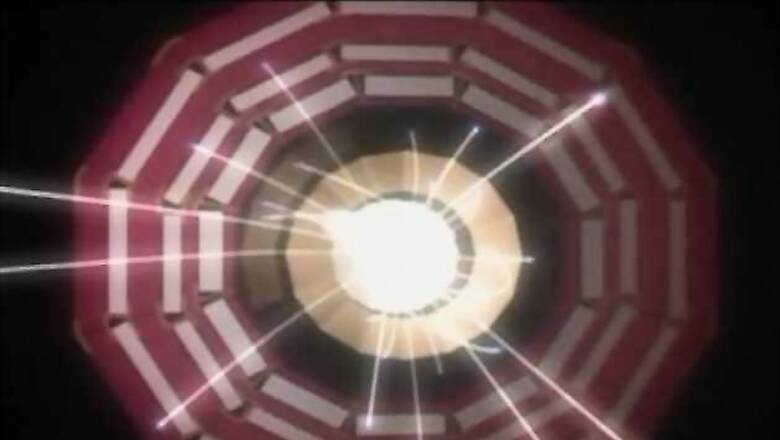
views
New Delhi: By now, the world knows about the origin of the term Higgs boson - American physicist Peter Higgs and Indian scientist Satyendra Nath Bose. IBNLive tried to trace the nomenclature of some other subatomic particles.
A quark is an elementary particle and a fundamental constituent of matter. Quarks combine to form composite particles called hadrons, the most stable of which are protons and neutrons, the components of the atomic nuclei. Physicist Murray Gell-Mann who discovered it, was scrounging around for a suitable name till he came across the word in Irish writer James Joyce's Finnegan's Wake. And you thought physicists were nerds who could never appreciate good literature, huh?
In particle physics, a hadron is a composite particle made of quarks held together by a strong force. Hadrons are of two types: baryons (made of three quarks) and mesons (made of one quark and one antiquark). The best known hadrons are protons and neutrons. The term hadron is derived from the Greek word hadros meaning stout and thick.
A baryon is a composite subatomic particle made up of three quarks (as distinct from mesons, which comprise one quark and one antiquark). Baryons and mesons belong to the hadron family, which are the quark-based particles. The name baryon comes from the Greek word for "heavy" barys, because, at the time of their naming, most known elementary particles had lower masses than the baryons.
Physicist Hideki Yukawa called his carrier particle the meson, from mesos, the Greek word for intermediate, because its predicted mass was between that of the electron and that of the proton. He had originally named it mesotron but was corrected by a German scholar of the Greek language who pointed out there was no 'tr' in the generic Greek word.
In particle physics, a fermion (named after American physicist of Italian origin Enrico Fermi) is any particle characterised by Fermi–Dirac statistics and following the Pauli exclusion principle. They include all quarks and leptons.
Skyrmion is a type of fermion which was proposed by British physicist Tony Skyrme. It is named after the scientist.
A lepton is an elementary particle and a fundamental constituent of matter. The best known of all leptons is the electron which governs nearly all of chemistry as it is found in atoms and is directly tied to all chemical properties. The name lepton comes from the Greek lepton, meaning fine, small or thin.
Gluon is a type of boson responsible for the strong force between quarks. The term derives from the English word "glue" because of its strong bonding quality.



















Comments
0 comment